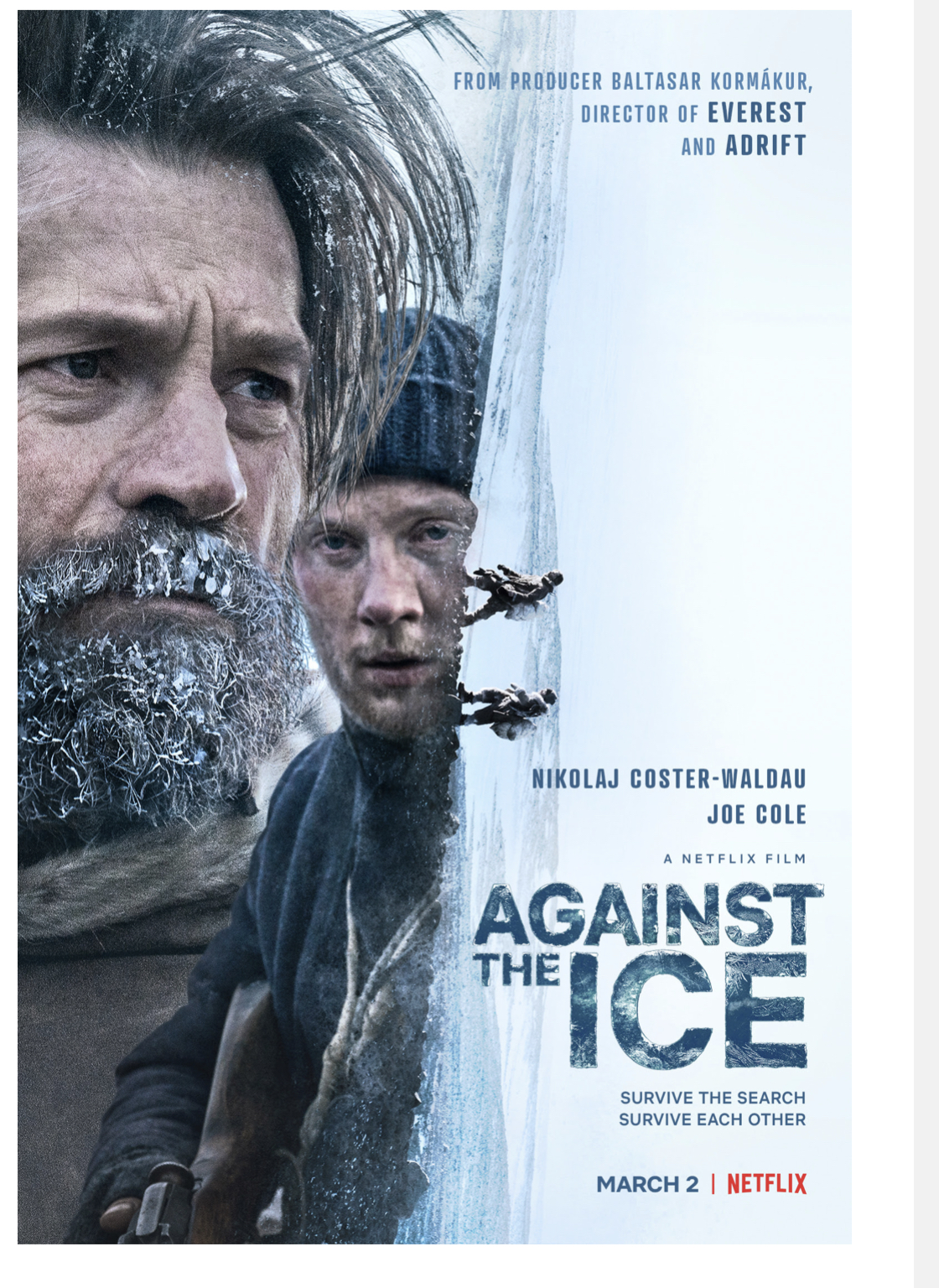Under the Banner of Heaven is not your typical true crime thriller.
Dano Nissen
Bobby Moynihan, Ted Danson, Kyla Kennedy & Cast Talk ‘Mr. Mayor’ [Video]
Mr. Mayor is serving its second term on NBC.
Winter is coming for Game of Thrones actor Nikolaj Coster-Waldau.
Joe Wright was left in charge of a piece of history. The pressure was on. But he’s been there before.
On the Scene: Questlove Presents Bowlmance at the Brooklyn Bowl
Questlove shared the love this Valentine’s Day.
On the Scene: Private Desert (Deserto Particular) Special Screening
Brazil is sending a queer love story to the Oscars.
Private Desert (Deserto Particular), Brazil’s submission for this year’s Academy Awards, tells a love story between a gender nonbinary youth and a disgraced ex-cop in a society that doesn’t accept them.
The film’s director, Aly Muritaba, sat down for a post-screening Q&A at the Museum of the Moving Image in Queens on November 20.
Muritaba began by answering whether Brazil’s right-wing president, Jair Bolsonaro, would appreciate the film. “I believe Bolsonaro would not be happy, especially with his history of homophobia,” he said via a translator.
He said the film received funding before Bolsonaro’s administration. But now that he is in power, Muritaba said LGBT art has faced more “censorship.” In response to Bolsonaro’s crackdown, Muritaba said the film is “fighting fascism with love.”
Muritaba — who identifies as a straight, cis man – discussed how he had aimed to be respectful and authentic to the experiences of his characters. He said he consulted with many trans women and made sure to have the actor who played the nonbinary lead be nonbinary themselves. He said LGBT people worked in front and behind the camera. “The [LGBT] community was present all the way,” he said.
Muritaba was asked about how his previous job as a prison guard informed his storytelling. “Listen to people,” the director said.
Throw the “seeing is believing” axiom to the wind.
Experimental documentarian Theo Anthony explores implicit biases with video evidence and the limitations and pitfalls of the surveillance state in his new film All Light, Everywhere.
The film weaves together the philosophical musings of Renaissance physicists, a Baltimore community meeting, a brief history of early interplanetary photography, an inner-city classroom film project and other disparate subjects to tell his story.
Even the experimental form in which the film is presented lends to his thesis. The documentary often presents the same event from different points of view and at different production and editing stages. The audience experiences not just the moving image, but the process by which the moving image was created.
But the centerpiece that holds the different threads together is police body cameras.
“What I found in body cameras was this really compelling confrontation of political, philosophical questions around image making,” said Anthony at a post-screening Q&A at DCTV in Lower Manhattan.
Anthony’s crew had ample access to the plant of the leading police body camera manufacturer, Axon, and a police training seminar on the use of body cameras. He said he wanted to present that footage as a fly on the wall and wasn’t interested in “gotcha” or manipulative journalism.
Anthony explained that although the devices are “meant to present the world as it is,” they carry their own inherent biases and uphold existing power structures.
He said the film was meant to demonstrate contradictions in the moving image and how one single truth is difficult to glean from video surveillance footage. He invoked his “favorite physicist” Neils Bohr with the quote, “Opposites are not contradictory but complementary,” to illuminate his point.
Anthony’s previous project, Rat Film (2016), also employed nonconventional storytelling methods. The film is a socio political examination of the city of Baltimore told through the focal point of a rat infestation. Anthony said he spent five years researching, filming and editing All Light, Everywhere. He said he intends to take a break from documentary for his next project.
There’s nothing ado with Winnie the Pooh.
Disney’s Winnie the Pooh is a delightful little production following AA Milne’s beloved characters as they go about doing…well, they don’t do much at all.
As our characters confront mundane and innocuous situations, they come up with solutions with profound yet kid-friendly implications. Tigger and Piglet have a stick racing competition. Which stick won? The brown one! How to determine the winner then? Everyone wins! It’s philosophy for your five-year old.
Winnie and friends are voiced and brought to life by puppeteers. The movement of the puppets is limited, and it sometimes feels as if you are watching humans lug around giant stuffed animals. Initially, this was distracting, but eventually, I came to see just the characters on the stage.
The production is light on musical numbers, action and Christopher Robin’s presence, so children may have a tough time staying engaged by singing along, getting excited by the story of relating to their kid proxy on stage. But the meandering anthropomorphic animals are fun and whimsical enough they left nary a fidgeting kid in the audience.
Disney’s Winnie the Pooh is a great family outing with little kids, albeit for ones with a high degree of patience and appreciation for the simpler things in life.
For JR, it’s all about the process.
French street artist JR presented and screened his documentary Paper & Glue at MoMA on Nov 8.
There’s a scene in the film where JR speaks with a prisoner about what art is all about. The process, they conclude. The film unveils the street artist’s process as he enlists armies of artisans and regular residents to create his iconic photo visuals glued on the faces of buildings and other surfaces, from the favelas of Brazil to the wall at the US/Mexican border to tenement housing in Paris to a maximum security prison yard in California.
The film is more about the children scurrying up the steps of a Rio favela, gluing photographs of residents’ eyes around the neighborhood or the antics of the Parisian tenement dwellers, whose likenesses are plastered across the city, than it is about the impresario behind it all. JR tells the story from the sideline as his subjects/collaborators take center stage. Their process is spontaneous, moving, thought provoking and just plain fun.
In a surprise appearance, Oscar-nominated actor Bradley Cooper introduced JR at the screening, highlighting the social impact of JR’s work and his friendship with the artist. JR then took the podium and discussed how Cooper’s friendly advice has always been helpful in his artistic process.
The after party, hosted a few blocks away at the restaurant Michael’s, boasted an A-list crowd. Beck, Ari Melber, Ayman Mohyeldin and magician David Blaine were among the guests.
Blaine performed card tricks for some of the partygoers, including MSNBC president Rashida Jones and also yours truly. He had me pick a card from a deck as he was shuffling and it somehow ended up under my wristwatch!
Paper & Glue comes off the heels of JR’s Oscar-nominated documentary Faces Places, which he made with French New Wave legend Agnes Varda. JR’s latest hits theaters Nov 12.
On The Scene: ‘The Shuroo Process’ Big Apple Film Festival Premiere
Who is Shuroo? A healer. A grifter. A mystic. A false prophet.
The enigmatic character at the center of the indie film, The Shuroo Process, embodies a bit of all of the above. He guides, or misguides, a diverse group of disillusioned people in a spiritual self-improvement retreat in the Catskills. We follow a journalist, played by Fiona Dourif, as she attempts to put her disarrayed life back together on the retreat.
“This is about the duality of how a lot of people live life,” said director Emrhy Cooper at the film’s premiere on closing night of the Big Apple Film Festival in Times Square. “People want to help you, but they also want to take advantage of you.”
The film marks Cooper’s feature debut. But he’s no film set novice. Cooper has been acting for over a decade, most notably starring in the StyleHaul series Vanity alongside Denise Richards.
However, he credits his wherewithal to step behind the camera for his first feature to an entirely different art form — ballet.
“I grew up as a ballet dancer, so I have a lot of discipline. I know you have to work very hard for what you do. I was never under any illusion it was going to be easy,” he said.
Cooper directed many first time and young actors in the film. Complicating matters was the remote Catskills location, which lacked reliable wifi and experienced some “bipolar” weather. Cooper said, “Everyone did a great job under the circumstances.”
He sang praise for one of the film’s more seasoned actors, Brad Dourif, best known for voicing the Chucky doll in Child’s Play and his Oscar nominated role in One Flew over the Cuckoo’s Nest. He also happens to be the father of the lead actress in The Shuroo Process.
“He’s one of the best character actors of our generation. Brad is in the league with Jack Nicholson,” said Cooper. “Every single take was good; it was almost hard to choose which one to use in the final film.”
The cast, crew and guests gathered in a private after party room at Chez Josephine, a nearby restaurant. The party was intimate and full of friends celebrating.
The Shuroo Process stars Fiona Dourif, Donal Brophy, Tommy Dorfman, Cooper, Rainey Qualley, Olivia Sui, Hakeem Kae-Kazim, Jeff Hephner and Cornelia Guest. It comes to theaters and on demand on November 24.











